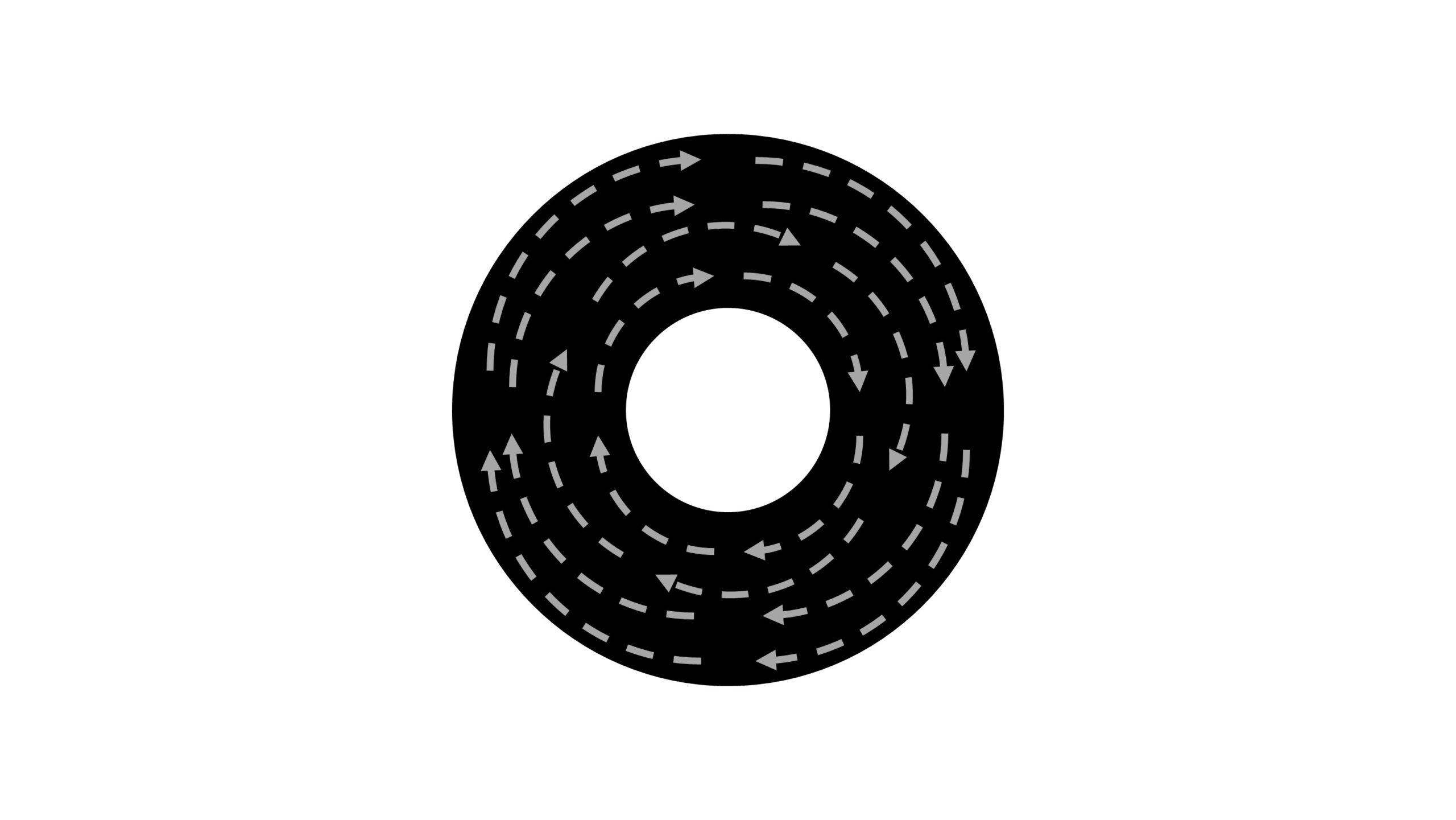Article last updated on August 24, 2023
Have you ever asked yourself, “Am I too self-aware”? Almost everyone has thought about this question at some point in their lives. It’s a common concern for many people.
The truth is that we are all aware of ourselves to varying degrees. Some people are more self-aware than others.
We could say that there’s a spectrum of self awareness. If you’re on one end of the spectrum, you might be very self-aware.
You may have a lot of insight into what makes you tick. On the other hand, if you’re on the other end of the spectrum, then you may not really know much about yourself.
Some people believe they are too self-aware because they are constantly analyzing their actions and emotions.
But there’s a catch. Being too self-aware can be detrimental.
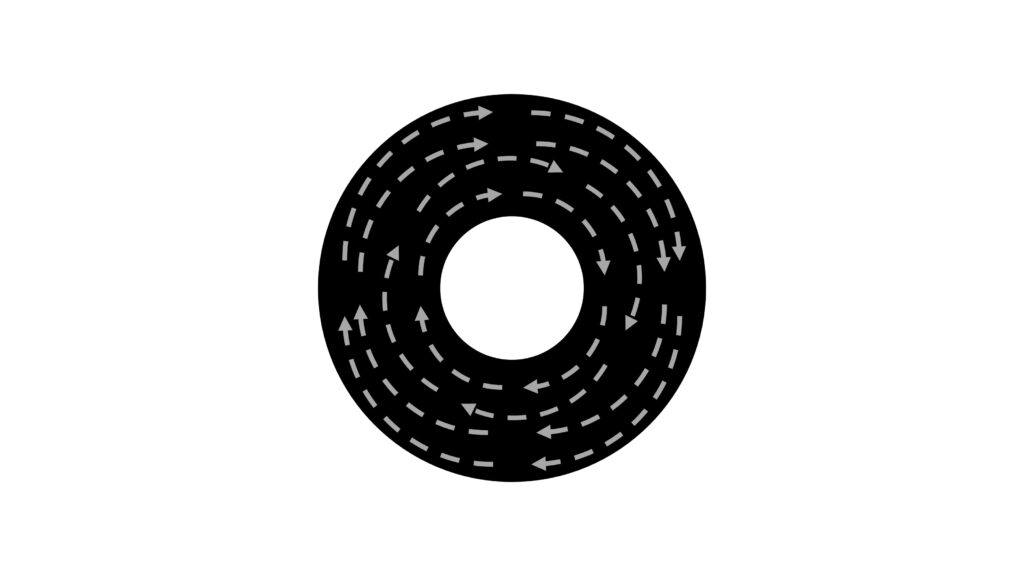
If we’re always analyzing ourselves and trying to figure out what others think about us, then we will never be happy with who we are.
It can cause us to question ourselves and even doubt our own abilities.
The more aware we become, the more likely we are to notice things that aren’t quite right in our lives. It can help us identify problems before they get worse.
Being self-aware doesn’t mean we have to analyze everything we do. We just need to be aware of our core values and beliefs.
My life and habits changed for the better when I understood what values and beliefs truly mean and how they can impact your life.
Your values are like your guiding principles that shape your personality and guide your daily choices.
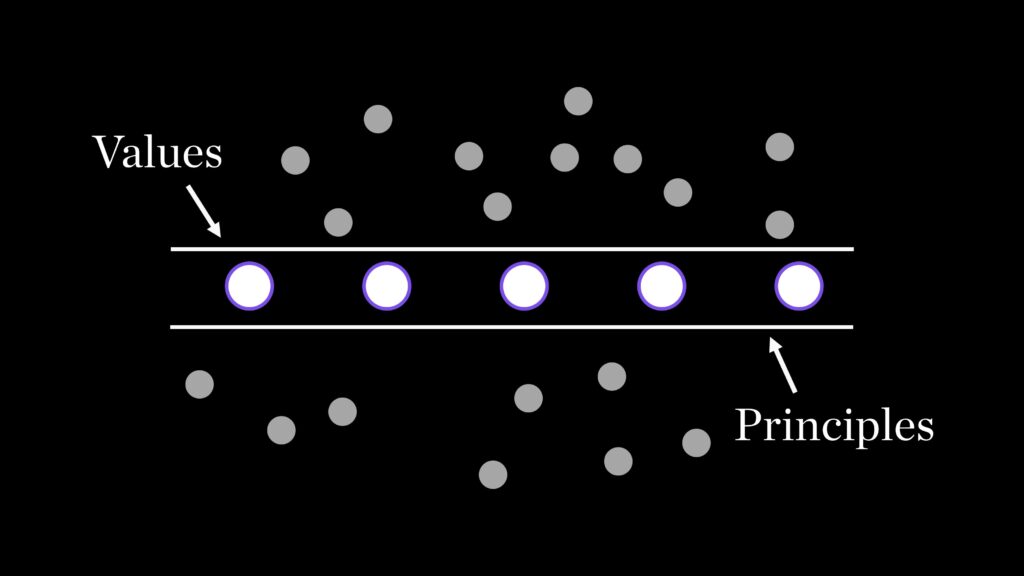
Values are important because they give us direction and purpose in life. They set your standards and what you will and will not tolerate in your life.
On the other hand, beliefs are the reason why we define and act on our values. Your beliefs create a unique worldview that shapes your perspective on life.
Beliefs are based on experiences, memories, and expectations. They are formed by our past and shaped by our environment.
Both values and beliefs influence our behavior and decision-making process.
When you are too self-aware, you tend to focus on only one aspect of yourself, which is usually negative, and your values and beliefs are usually put to the side. That’s why we need to have a balance between being self-aware and being too self-aware.
We must learn to accept ourselves as we are without overly judging ourselves.
Two Types of Self-Awareness
In my previous articles, I’ve talked about two types of self-awareness. One type is called “internal self-awareness,” and the other is called “external self-awareness.”
Internal self-awareness refers to recognizing our thoughts, feelings, attitudes, and behaviors.
External self-awareness means knowing what others think about us.
Both types of self-awareness play a role in our lives.
I want to give you a short overview of both of them so you can better understand how being overly self-aware affects your life.
Let’s start with internal self-awareness first.
Internal self-awareness
When you are internally self-aware, you are able to recognize your emotions and reactions.
It is sometimes called “private self-awareness.”
This awareness is crucial because it helps you understand your motives and intentions. You can use this information to improve your relationships, increase your productivity, or change your lifestyle.
For example, if you feel anxious, you might try to find ways to relax. If you feel angry, you may try to calm down. If you are constantly feeling guilty, you might try to forgive yourself.
By paying attention to your feelings and acting in the right way, you can avoid emotional distress and have a better life.
External self-awareness
External self-awareness is the ability to understand what others think about you.
This can also be perceived as a form of public self-awareness. Self-aware people know what their friends, family members, colleagues, and coworkers think about them.
They know whether they are liked or disliked by these people.
If you don’t pay attention to this part of yourself, you’re missing out on valuable opportunities because you could potentially see your blind spots.
The only thing I would caution you against is becoming obsessed with this part of yourself. It can create a social anxiety disorder if you are always trying to please everyone around you or constantly obsessing over what others think about you.
It’s okay to ask for feedback from time to time, but you should never let it consume you.
Here is a short summary of both types of self awareness:
| Type of Self-Awareness | Description | Example or Benefit |
|---|---|---|
| Internal Self-Awareness | Recognizing thoughts, feelings, attitudes, behaviors; understanding motives and intentions. | Helps in improving relationships, productivity, lifestyle. Enables recognizing emotions and reacting appropriately, like calming down when angry. |
| External Self-Awareness | Knowing what others think about you; a form of public self-awareness. | Can reveal blind spots, offer insight into how you are perceived by others. Caution: Obsession with this may lead to social anxiety or an unhealthy need to please others. |
Now let’s take a look at positive and negative sides of too much self-awareness.
The Positive and Negative Sides of Too Much Self-Awareness
Too much self-awareness can cause many problems. For instance, excessive self-awareness can prevent us from having healthy relationships.
As mentioned earlier, it can also cause us to obsess over everything that happens in our lives. We spend too much time analyzing things instead of enjoying what’s happening right now.
If you ask me, “Is it bad to be too self-aware?” My short answer would be yes.
But, there are two sides of the same coin, so to speak. In order to see the whole picture, I want to share both the positive and negative aspects of having too much self-awareness.
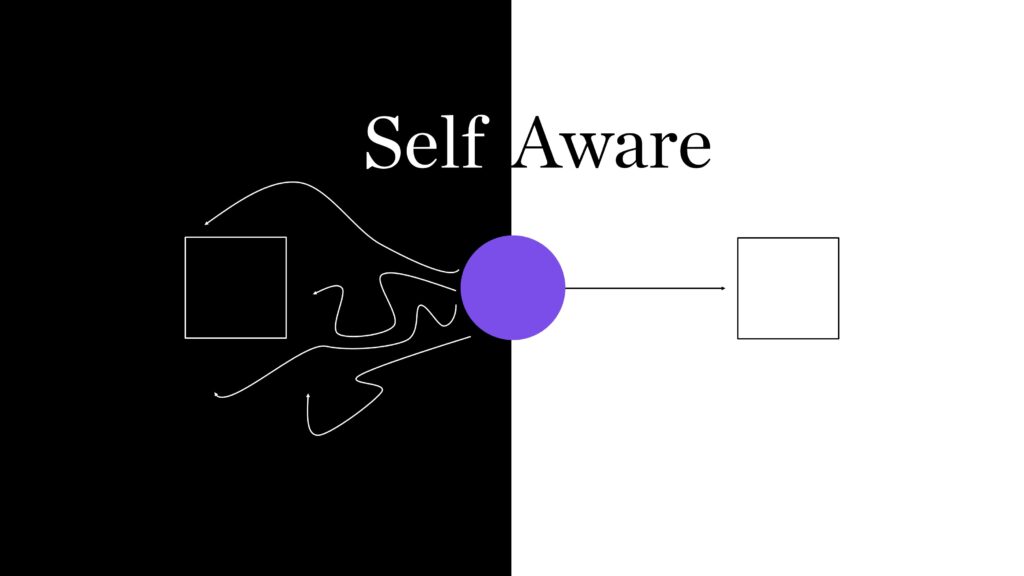
Positive aspects
Being too aware of ourselves can help us come up with better ways to deal with problems.
We can learn to identify our strengths and weaknesses. We can figure out which areas need improvement. We can then focus on improving those parts of ourselves.
This means that we can become stronger, smarter, and more capable.
Imagine this as a game where you have to play against yourself. When you get stuck in a situation, you can analyze why you got stuck. Then you can decide what you need to do next.
Negative aspects
On the other hand, being overly self-aware can be detrimental to our health and well-being.
First off, it can lead to feelings of isolation. People who are excessively self-aware tend to isolate themselves from others. They often spend most of their time alone thinking about themselves.
Second, it can lead to feelings of guilt, shame, and worthlessness.
When this occurs, people start to believe that they are bad people. They begin to question their own value.
Just imagine how awful it feels to think constantly that you are worthless or you lack something. You become the hardest person to love.
And all of this stems from being overly self-aware of your flaws.
How to Recognize If You Are Overly Self-Aware
When we are too self-aware, we tend to notice everything that goes wrong. It is like looking through a magnifying glass. We see all of the imperfections and shortcomings.
In fact, we can even come up with a list of 100 reasons why we are not perfect.
So, here are some signs that you may be overly self-aware.
- You feel guilty after making mistakes.
- You keep comparing yourself to others.
- You always feel like you are doing something wrong.
- You are easily embarrassed by your behavior.
- You are obsessed with your past failures.
- You are afraid of success.
- You find it hard to trust people.
- You criticize everyone else.
- You are afraid of rejection.
- You are afraid of getting hurt.
- You are afraid of change.
- You are afraid of commitment.
- You are afraid of letting go.
- You are afraid of taking risks.
- You are afraid of being vulnerable.
You could especially recognize that you are overly self-aware in private by yourself and ask yourself these questions:
- Why am I feeling this way? Why am I so critical of myself?
- What if I were to stop judging myself for my mistakes? Would I feel different?
- What if I stopped comparing myself to others? Would I feel better?
- Do I really deserve to be happy?
- Is it possible for me to let go of perfectionism?
If you have recognized that you are overly self-aware, that’s OK because we go step-by-step on how to overcome these negative aspects. But before we move forward, let’s first understand the root causes of having too much self-awareness.
What causes us to be self-aware?
There are three main reasons why we are overly self-aware. First, we want to avoid pain. Second, we want to gain pleasure. Third, we want to please others. You see, when we are overly self-aware, we try to protect ourselves from pain.
We don’t want to experience any discomfort or unpleasant emotions such as anxiety, anger, sadness, disappointment, frustration, etc. So, we try to avoid them.

We do this by over-analyzing things, trying to figure out what went wrong.
For example, if we get rejected by someone, we will analyze the situation. We might ask ourselves, “What did I say?” Did I act confident enough? Was I dressed appropriately? Was I nervous?
The more we analyze our mistakes, the more we create painful memories. And the more painful memories we have, the more likely we are to avoid those situations again.
This leads to another problem. The more we try to avoid pain, the less pleasure we actually receive.
So, we end up avoiding pleasure altogether.
This is where we start to lose touch with reality. We begin to believe that we are not worthy of happiness.
We think that we are not deserving of love. We think that we are not capable of achieving anything.
And the worst part is that we convince ourselves that we are right about all of this!
How does this happen? Well, it happens when we become overly self-aware.
- When we spend time thinking about everything that has gone wrong in our lives.
- When we spend time thinking about our shortcomings, flaws, and weaknesses.
- When we spend hours analyzing our behaviors and other people’s behaviors.
When you are overly self-aware, you are constantly looking at your own life through rose-colored glasses.
And the truth is, there is nothing wrong with wanting to avoid pain. It’s perfectly natural. But when you spend all day analyzing your mistakes, it becomes exhausting.
Now, here comes the good news. If you now understand the root causes and if you recognize that you are overly aware, you can easily overcome this issue.
How to Overcome Being Too Self-Aware
To stop being too self-aware, we need to change the way we think. We should never dwell on issues that affect your entire life.
At the beginning of this article, I mentioned values and beliefs. These are the most powerful tools for overcoming being overly self-aware. Values and beliefs are the foundation of who we are.

They give us purpose and direction. Without them, we would just ruminate endlessly.
Values and beliefs are at the core of who we are. They are the basis of our identity.
So, to stop being overly self-aware, here’s what you need to do, and as a result, you’ll strengthen your values and beliefs.
1. Stop analyzing everything.
When we go through life analyzing everything, we spend all our mental capacity on making sure that we didn’t miss something. But constant analysis drains energy from us.
Don’t waste your energy by analyzing everything.
Don’t worry about whether or not you said something correctly. Whether or not you acted confident enough. Whether or not you were nervous.
Analyzing everything takes away your focus. You will be too busy trying to figure out why things went wrong, instead of thinking about what you could do.
2. Learn to let go.
You cannot control the world, but you can control your reaction to it. So learn to let go. Learn to accept whatever happens.

When you let go, you allow yourself to have more space for opportunities. And you don’t get stuck in the past. Instead, you move forward.
Being too self aware keeps you trapped in the past, but letting go helps you achieve real self-awareness.
3. Understand that you are responsible for your happiness.
If you want to stop being too self-aware, then you must accept responsibility for your happiness. If you want to be happy, then you must take action to become happy.
Being too self-aware makes you feel helpless. It makes you believe that no matter what you do or say, you cannot influence the outcome of your life.
4. Focus on your strengths instead of your weakness.
The most common mistake people make when they are overly self-aware is focusing on their weaknesses. The problem with this approach is that it doesn’t help you improve.
The great thing is that you can channel the same amount of effort into seeing your strengths.
For example, if you are shy, try to speak up more often. Remember the moment when you felt comfortable speaking? Acknowledge that moment and take it with you moving forward.
5. Stop comparing yourself to others.
It’s easy to compare ourselves to other people. Everyone else has a different set of skills, abilities, talents, and personality traits.
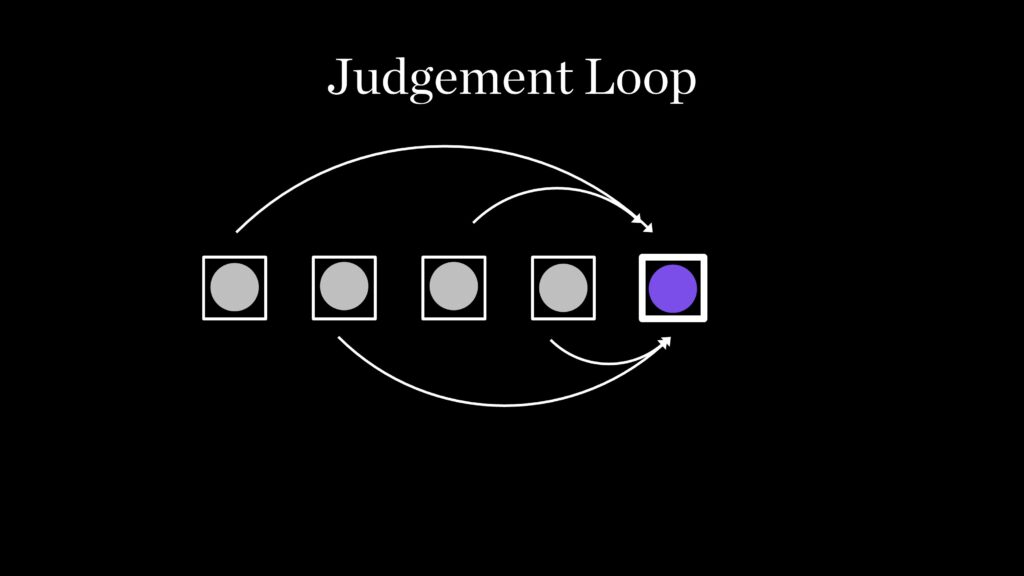
When you have too much self-awareness, you can see one aspect of yourself and compare it to another person. Then you might overly focus on that.
But keep in mind, there’s nothing wrong with comparing yourself to others in a healthy manner. When you compare yourself to others, you realize where you excel and where you need improvement.
But where it becomes destructive is when you start obsessing over comparisons. That’s when you end up feeling bad about yourself because you are constantly comparing yourself to someone else.
6. Get rid of perfectionism.
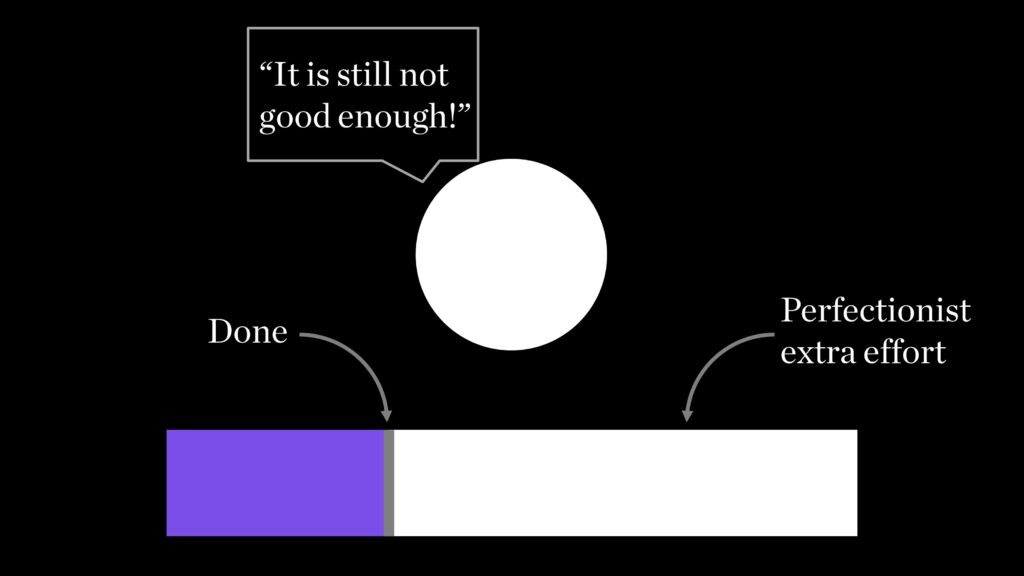
Perfectionism is a huge obstacle to overcoming when you are too self-aware. Perfectionists always feel as though they are failing. They never feel satisfied with themselves.
So how do you get rid of perfectionism? Well, this article might help you, but in short, you just have to practice showing your work no matter how imperfect it may seem.
You should not be a judge of your own work. You would be amazed at how much we sabotage ourselves just to avoid criticism. We spend hours perfecting our work, yet we still fail to deliver… because we hide our work.
7. Find a hobby.
Hobbies give us a chance to express ourselves creatively. They allow us to explore new things and expand our horizons.
To decompress your rumination about self-awareness, sometimes you just need more expression.
All negative emotions can be channeled or transformed into something beautiful. So find a way to express yourself through art or music.
But this can also be some form of exercise as well. For me, working out every day is my outlet. I love to ride a bike and lift weights. These activities help me find a perfect balance between my mental and physical health.
To wrap up this section on how to overcome being too self-aware, the main thing is to decompress your thoughts and focus on creating positives in your everyday life.
How to balance your self-awareness if you have too much of it?
To be blunt, it is great when you know that you have too much self-awareness because it makes it easier to balance it compared to having none at all.
It is easier to remove the excess.
To balance your excessive self-awareness, you will have to use your gut instinct. It is the best tool for balancing your self-awareness.
Self awareness is a double-edged sword. On the one hand, it helps you become a better person by helping you recognize your flaws and weaknesses. On the other hand, it can cause you to spiral into a downward spiral of depression.
If you notice yourself becoming too self-conscious, then listen to your instincts. What generates some weak emotions in you? What are you constantly ruminating about?
Then it will be up to you to let go of what isn’t serving you and blocking you from living a happier life.
Why am I so self aware?
This can be a complex issue, and it’s a real concern for many folks, so I’m going to break it down for you in a way that’s clear and relatable.
1. Self-Conscious Emotions: First off, self-conscious emotions like guilt, embarrassment, or pride can drive you to be more self-aware. You’re constantly evaluating how you appear to others, leading to an increased focus on self.
2. Quality Of Life: Believe it or not, your overall well-being plays a role here. When life’s going well, it’s easy to get lost in the moment. When it’s not, you might find yourself looking inward, analyzing every thought and action.
3. Consciousness From Time: Over time, we all grow and evolve. Sometimes that means developing a deeper level of self-awareness. You’re not the same person you were five or ten years ago, and that’s not only normal but often a sign of maturity.
4. Unhealthy Self-Conscious Emotion & Deep Level Understanding: At times, being too self-aware might veer into the territory of hyperawareness disorders or mental disorders. This isn’t about stigmatizing, but understanding that self-awareness has its extremes.
5. Self-Awareness Outcomes & Constructive Functioning: Your self-awareness likely doesn’t just come from nowhere. It might be a result of reflection and working on understanding yourself better, maybe even engaging in behavioral therapy. This can foster constructive functioning, which enhances your life.
6. Interactive Influence & Metacognitive Awareness: Being self-aware is about recognizing your thoughts, and knowing what others think about you. This interactive influence, alongside metacognitive awareness (thinking about your thinking), can make you more conscious of yourself.
7. Bunch Of Stories & Bad Decisions: We all have a past. Your history, the stories of your life, and the decisions you’ve made, good or bad, contribute to your self-awareness. You learn from them, and that shapes who you are.
8. Healthy Self-Conscious Emotions: Finally, not all self-awareness is bad. Being mindful of yourself, having healthy self-conscious emotions, and recognizing them as they happen, can lead to positive outcomes.
Now, I know we touched on a whole lot of concepts here. But it’s all connected.
You being so self-aware could be a blend of natural evolution, intentional self-improvement, and sometimes, a reaction to life’s ups and downs.
It’s essential to find the right balance, seek joy, connection, and if necessary, professional support.
Can being too self-aware lead to specific mental health conditions like borderline personality disorder?
Being overly self-aware can be linked to mental health conditions such as borderline personality disorder (BPD).
Those with BPD often have an intense fear of abandonment, unstable relationships, impulsivity and feelings of emptiness.
Self-awareness can exacerbate these symptoms due to the individual’s heightened sensitivity and vulnerability to their innermost thoughts and emotions. People with BPD may become overwhelmed by the fear of not being accepted or feeling inadequate, leading to further distress and anxiety.
In this situation, it is important for those with BPD to be able to manage their self-awareness in a healthy way.
This includes learning techniques such as mindfulness, allowing yourself time for self-care and refocusing on the present moment rather than ruminating about the past or worrying about the future.
By managing your self-awareness, you can reduce the risk of developing mental health conditions such as BPD and help you lead a happier and healthier life.
How does excessive attention to oneself impact social interactions and relationships?
Excessive attention to oneself can have a negative impact on social interactions and relationships.
Being overly self-aware can lead to a number of issues, including feelings of insecurity, decreased self-esteem, and difficulty making decisions. These feelings can interfere with a person’s ability to connect with others in meaningful ways.
When someone is too focused on themselves, they may become defensive or self-conscious when interacting with others, making it difficult to form a connection.
Additionally, they may find it hard to express their true feelings, resulting in misunderstandings and lack of trust in relationships.
Furthermore, those who are overly self-aware may be more likely to compare themselves to others or become overly competitive in social settings.
This can lead to feelings of envy or resentment towards those around them , making it difficult to form genuine relationships.
In order to overcome this issue, it is important for those who are overly self-aware to take time to reflect on their thoughts and feelings in order to gain perspective and increase self-compassion. Additionally, engaging in activities that help reduce stress and foster a sense of connection can help reduce the amount of attention that is focused on oneself.
How does emotional intelligence play a role in balancing self-awareness outcomes and avoiding the constant feeling of self-criticism?
Emotional intelligence plays an important role in balancing self-awareness outcomes and avoiding the constant feeling of self-criticism.
It is a form of metacognition—the ability to think about one’s own thoughts, feelings, and behavior—and is key to developing healthy self-awareness.
Emotional intelligence can help individuals recognize their emotions as they are happening, understand how those emotions affect their behavior, and respond appropriately.
This helps individuals to make better decisions, build stronger relationships with others, and lead more meaningful lives.
Additionally, emotional intelligence can help reduce the negative self-talk that often accompanies the feeling of being overly self-aware and critical.
By recognizing patterns in thinking that tend to be unproductive or inaccurate, individuals can learn how to recognize and reframe these thoughts in a healthier and more constructive way.
Finally, emotional intelligence can help individuals learn how to take time for self-care and practice mindful approaches to managing stress and anxiety.
By learning how to respond to their emotions in healthy ways, individuals can reduce the likelihood of getting stuck in a cycle of self-criticism and work towards leading more balanced lives.
What are the potential negative feelings that arise from being overly self-aware on a deeper level, and how can they be managed?
Potential negative feelings that can arise from being overly self-aware on a deeper level include feelings of anxiety, depression, and guilt.
These can lead to difficulty making decisions and forming relationships, as well as decreased self-esteem and confidence. It can also lead to a feeling of enclosure in which one is unable to escape their own thoughts and worries.
One way to manage these feelings is to practice self-compassion and mindfulness. Self-compassion helps to foster a sense of acceptance and understanding towards oneself, while mindfulness can help ground one in the present moment and reduce rumination.
Additionally, engaging in activities that bring joy and connection—such as pursuing hobbies, spending quality time with friends or family, or volunteering—can help to break the cycle of negative self-talk and increase feelings of wellbeing.
Can cognitive behavior therapy be used to treat issues related to excessive self-awareness, such as feelings about feelings?
Yes, cognitive behavior therapy (CBT) can be used to treat issues related to excessive self-awareness. CBT is a type of psychotherapy that focuses on identifying and changing unhelpful thoughts and behaviors.
It can help individuals recognize the connections between their thoughts, feelings, and actions and work towards making positive changes in how they view themselves and their environment.
CBT can be used to address feelings about feelings, as it can help individuals recognize how their thoughts and emotions interact and affect one another. It can also help them to identify patterns in thinking that are unproductive or inaccurate and learn how to challenge and reframe these thoughts in healthier ways.
What are some real-life or apocryphal stories that highlight the dangers of excessive self-awareness?
One example of the dangers of excessive self-awareness can be seen in a news story about a woman who was paralyzed after spending too much time analyzing her own emotions and thoughts.
She became so caught up in her own head that she neglected to take care of herself physically, eventually leading to paralysis.
Can excessive attention to negative feelings lead to a disconnect with social gatherings, and how can one overcome it?
Yes, excessive attention to negative feelings can lead to a disconnect with social gatherings.
This is because such thoughts and emotions can cause an individual to become defensive and overwhelmed, making it difficult to form meaningful connections with others.
Additionally, constantly questioning one’s own behavior and self-judgment can make it hard for an individual to enjoy themselves in social situations.
In order to overcome this disconnect, it is important to recognize and challenge unhelpful thought patterns.
Developing a decision journal—a tool that helps individuals identify unconscious choices they make throughout the day—can be particularly helpful in this regard.
Additionally, engaging in activities that focus on conscious choice making can help individuals become aware of their internal dialogue and reflect on how their thoughts are impacting their actions. Finally, engaging in therapy can help an individual identify and challenge unhelpful patterns of thought related to social situations.
Conclusion
Being too self-aware is normal. It would be strange if you didn’t experience any sort of self-awareness. However, if you notice that you are experiencing too much self awareness, now you know what to do.
From personal experience, I can tell you that it is not good for your wellbeing to recognize that you are too self-aware and not do anything about it.
If I ignored it, it would keep accumulating until it would become overwhelming.
To be honest, this is one of the reasons for writing this article. I know how it feels and I know what helped me deal with it.
And hopefully, after reading this article, you will learn how to cope with this if you have too much self-awareness.


